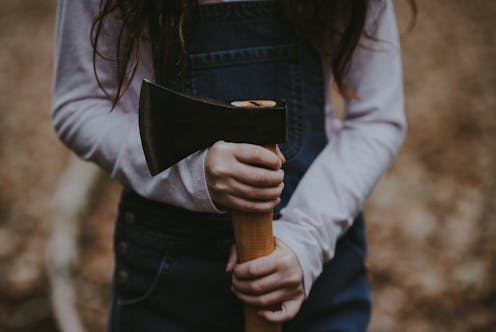Seven Little Australians' wild heroine, Judy, was equipped to conquer the world – but not to survive it
- Written by Edwina Preston, PhD Candidate, The University of Melbourne

I can’t remember if I first met Judy Woolcot on the TV screen or in print: the two versions have cohered into a single entity. The television series of Ethel Turner’s Seven Little Australians[1] first aired in 1973, so if I met her on-screen, it must’ve been via re-runs.
I know my mother’s paperback copy of the novel featured a still from the series on its cover: a family portrait — Meg, Bunty, Baby, Nell, Pip; the General in a nightshirt, clinging to his young mother. The ultra-Victorian Captain Woolcot, played by Leonard Teale, his chin jutting out so precipitously that it threatens to pierce through the picture. And Judy, with bundles of shoulder-length hair, perched on a sofa arm, seeming somehow too big, too angular for the frame.

















